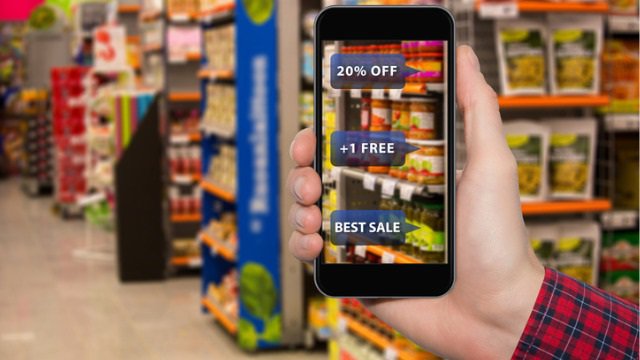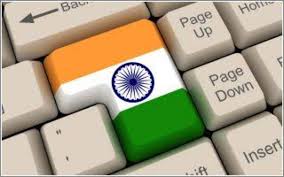If you have a Software as a Service (SaaS) idea that you passionately want to see the light of day, you might want to seek out The Lean Apps, a company that calls themselves a ‘startup for startups’. Taking an idea to MVP to the stage of investment and beyond, they have worked with over 20 startups in retail, music, insurance, health and telecom sector, worldwide.
The Tech Panda spoke to Gaurav Soni, the co-founder of Lean Apps, which is currently focussing on its retail product Infinia Retail. Soni speaks about the challenges in the Indian retail market and the need for building customer relations.
While online stores offer better pricing, he says, the actual attraction for a customer is still the experience. While blockchain and AI are celebrated for transparency, in the end, a customer returns for a good experience. Infinia’s focus in the coming five-ten years will be to build products that help retailers in enhancing the experience.
Retail Engagement Platform Netree’s FOOP is Connecting the Indian Market
“The physical retailer today is not connected to the customer. They don’t focus on returning customers, their likes and preferences, or offer them personalised pricing. The customer is nowhere in the picture in the overall transaction journey,” he says.
Challenges in the market
While the retail segment in India presents stiff competition, particularly in terms of profitability and margin received from Original Equipment Manufacturers (OEMs), the biggest challenge, Soni says, is the customer mind set.
“Retailers are still not ready to invest much on technology. Enterprise Resource Planning (ERP) and accounting system products, like Tally and Busy, are already being used for years, but when it comes to mobile apps, AI, or AR, India is taking a long time in deciding whether they want to go towards technology or are focusing on enhancing in-store customer experiences. They tend to believe that if a customer is coming, he/she will anyhow buy. We want to bring the market to the level where they start focusing on building a relationship with customers and focusing on the experience,” he says.
Another challenge the retail market faces is the adaptation of technologies. Rising real-estate costs in retail and high inventory-holding cost are leading to shrinking stores. Still, retailers are not analysing predictability of sales based on customer demands. Inventory availability across stores often becomes a big challenge for retailers. Infinia plans to connect the systems that are already there.
How it started
Soni started The Lean Apps three and a half years back with two of his co-founders. They started by helping startups, providing them business consulting and services for building their products, which include many mobile app developments. Working with enterprises and startups, they built a team of around 50 people in India. After they started generating a good amount of revenue in terms of business in services, they took the direction they always wanted to take, towards products, and that’s where Infinia Retail started.
They started building products to enhance customer experience in offline stores with both a technology and a business perspective. “In Infinia, the focus is the retail industry. The retail industry is an ecosystem with an online as well as an offline world, which are converging. The customer is looking for a seamless experience whether its buying online or offline. However, there is a huge gap in the way production happens online versus offline. So we started focusing on enhancing the experience of the customer in offline stores,” he explains.
Currently focusing on Infinia, Soni is helping it grow in India and Europe with his partner. They have also started trying to get into other geographies like Middle East, Europe, and the Asia Pacific region. “Presently in the validation state, we are building products based on customer problems and validating it with our customers. Once we know what the exact problem is, we can scale up on it,” he says.
How it works
Infinia is a SaaS offering for retailers to help them enhance the customer experience in their store, leading to increase in sales. A customer’s journey starts when he/she walks into a store and inquires about a product. Typically, with products like furniture, TV, or clothes, they want to see it and feel it, so they go to the store and inquire about the product.
The challenge is that the associate in the store talking to customers doesn’t know their intent to buy, which often leads to lost sales. Contrary to that, in online shopping, like Amazon, customer behaviour on the website, which includes time spent on the product page, reading reviews, adding to cart, helps know the intent to buy. In an offline store, the associate is the touch point for the customers. However, when customers walk out of the store, this associate doesn’t have the opportunity to take details like contact number, e-mail address, to connect with them online or offline.
Infinia helps the associate capture a quick lead on the customer, associating him/her with the product he/she was looking for. This product information goes into Infinia’s AI amd ML based cloud, forming a customer database.
Perpule: Bringing Queue-less Shopping Solutions to the Indian Shopper
As Soni explains, “It’s akin to adding a product to the cart. An online store can pursue you via e-mails, giving you offers and recommendations. Using Infinia, an offline store can do the same. So you have an e-commerce platform, through which, the store can send a link to customers, which they can click and collect. The product can be delivered and the store can collect the money at doorstep.”
Future plans
Their core forte being retail, the company plans to expand in the products they are focusing on. They are also moving on to voice-based products and AR, because they are also targeting the European and the US market.
“The intent is to make voice-based products, because 60-70% of searches in the next three years will be on voice. We’ll start using the AI, AR, and voice technologies to work on enhancing customer products,” Soni says.
They are also looking at building B2C products to help customers interact with the brand, allowing them to better review the brand. “We want to build something similar to Zomato in retail. Whether you want to buy shoes, jewellery, or a TV, you can look at the nearest store locations, the store’s review, compare the price with online prices, on the same app. Then, you can decide if you want to buy online or offline. So you initiate the buying decision, and it becomes a referral program. So for us, everything becomes uniform. The customer can see everything in one place and then decide,” he says.












